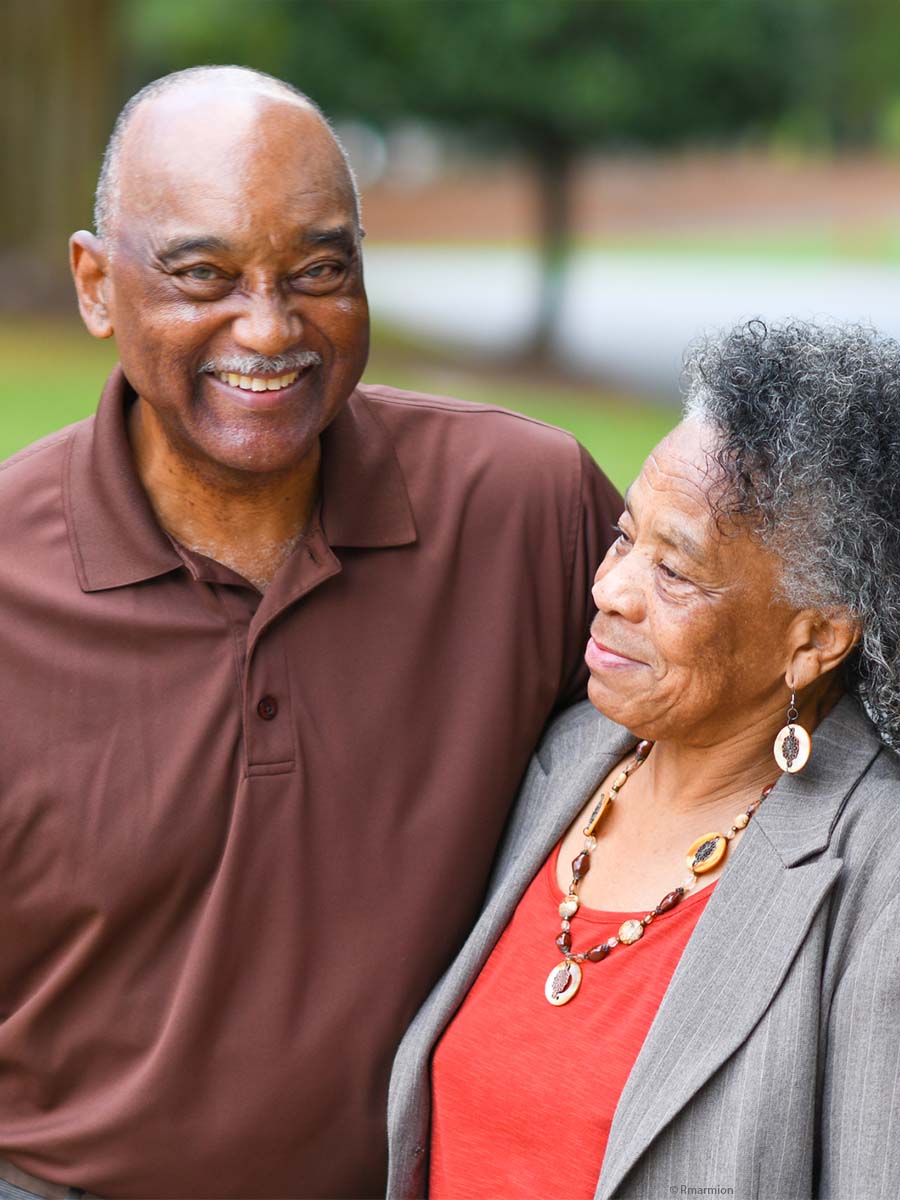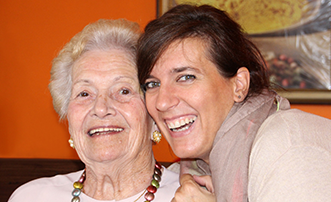Dementia Basics
What is Dementia?
Dementia is not a specific disease or diagnosis. “Dementia” is an umbrella term that describes trouble with memory, thinking, reasoning, language, planning, and more. There are many types of dementia, but some of the most common include:
- Alzheimer’s disease
- Vascular Dementia
- Lewy Body Dementia
- Frontotemporal Dementia
Dementia vs. Normal Aging
What is “normal aging” and when should you be concerned? Because our brain ages along with the rest of our body, some changes can be expected. However, a brain disease, like a type of dementia, is not a normal part of aging.
Learn More about the Longest Day 2026
June is Alzheimer’s & Brain Awareness Month, and The Longest Day—June 21—is a powerful reminder of the challenges faced by those living with dementia and their caregivers. Held on the summer solstice, it symbolizes the long days they endure and honors their strength. Raising awareness helps break stigma, inspires action, and supports vital research and care efforts. Every moment matters—let’s shine a light together. Stay tuned for upcoming events to raise awareness and show community support!
Dementia Care Specialist (DCS)
The Dementia Care Specialist (DCS) can help educate family members, provide support and connect caregivers to services, and problem-solve challenging situations.
The mission of the Dementia Care Specialist Program is to support people with dementia and their caregivers in order to ensure the highest quality of life possible while living at home. In order to accomplish this mission, the DCS has three main goals:
- Ensure ADRC staff and volunteers are trained and competent about dementia so customers are met with understanding and support
- Provide education and support to family members and friends who are caregivers
- Help develop Dementia-Friendly Communities where people with dementia can remain active and safe, and caregivers can feel supported
This is done through phone calls, office visits, and even home visits if necessary.
Contact ADRC (920) 448-4300 to speak to the Dementia Care Specialist.
Upcoming Classes & Events
| Healthy Living with MCI | Friday, December 12 | 9:30 – 11:30 AM | Register |
| Wellness Week: Dementia Experience | Tuesday, January 27 | 1:00 – 2:00 PM | Register |
Brain Check-Up
Communication Strategies
Purple Angel
Is My Loved One Eating Enough?
National Family Caregiver Month When caring for a loved one, there are many tasks that need to be juggled, including preparing meals and being sure they are getting adequate nutrition. Older adults are at risk of not eating enough. 15% of people over 65 may...
November is National Family Caregiver Month!
National Family Caregiver Month is celebrated every November. This is a time for us to recognize and honor family caregivers everywhere! In addition to celebrating the selfless efforts of our caregivers, it allows us an opportunity to:• Raise awareness of family...
Ask I&A: Caring for a Loved One
Question: I am caring for my husband who has high physical needs. I am doing everything for him right now and starting to feel overwhelmed. What can I do? Answer: Thank you for your question. A caregiver's role is all-encompassing. You are helping someone who is not...
Dementia Resources
- EClick to Read More
Resources with this icon can be clicked to learn more.
ADRC Brain Check-Up
Discover how a FREE, simple, ten-minute Brain Check-Up can help you stay on top of your brain health. Given by trained staff at ADRC, these screens can be done in our office or your home.
Communication Tips, Strategies, & Video Resources
Video resources available on re-enactments of challenging situations, caregiver series specific to improving communication, practical tools, and information on online training for family caregivers.
Dementia Care Specilist (DCS) Brochure
Serving individuals, families, and the community, your local Dementia Care Specialist can help you with any questions regardign dementia in your family or at large in Brown County.
Dementia Resource Guide
A diagnosis of dementia can bring about feelings of fear, worry, stress, and confusion. This Dementia Resource Guide was put together by the Brown County Dementia Friendly Community COalition to help you and your loved ones find answers to your many questions. This guide covers information about dementia and resources on advance directives, support systems, respite options, medication/treatment, education, safety in the home, avoiding crisis, financial assistance, and end-of-life planning.
Memory Cafés
A fun way to get out with your loved one who has early stage memory loss in a comfortable, accepting environment. Monthly cafés are fun on different times and days of the week in a number of locations and include an activity and time to socialize.
Memory Concerns: Next Steps for Further Testing
An early diagnosis can lead to better treatment and quality of life outcomes, plus resolve anxiety of wondering, "What is wrong with me?" It can also give you more time to plan for the future, allowing you to make decisions regarding care, living arrangements, financial & legal matters, and other important issues.
Understanding Dementia Behaviors
All behavior is communication. Because of physical changes in the brain, a person with dementia may no longer have the ability to express their own needs, wants, or feelings. Instead, your loved one may use their behavior to communicate.
Recursos en Español - Spanish
Preocupaciones de Memoria: Próximos pasos para más pruebas
(Memory Concerns: Next Steps for Further Testing)




